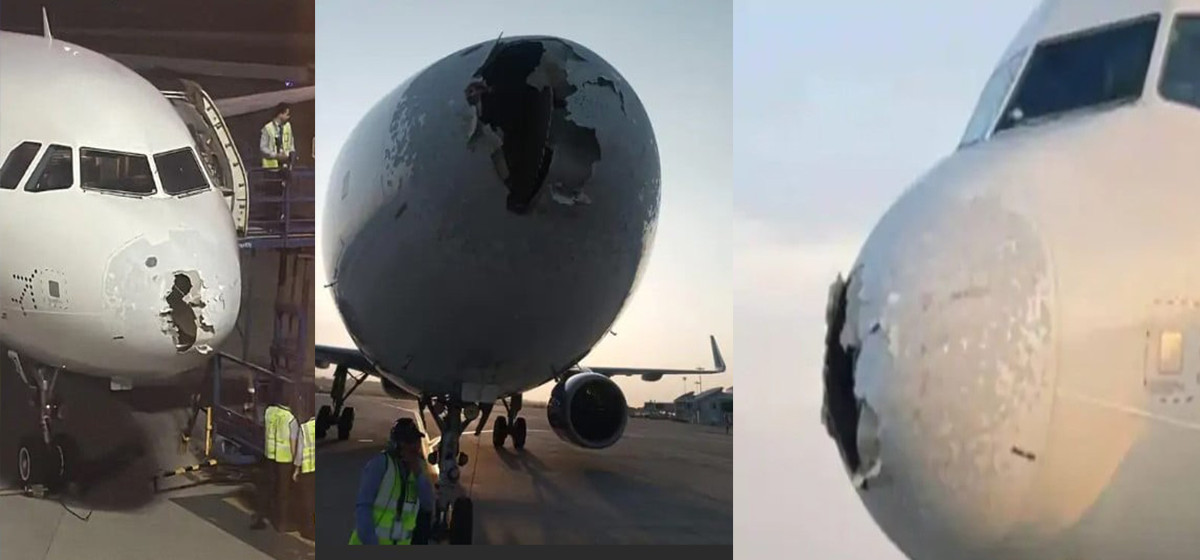HONOLULU, July 12: Intense turbulence struck an Air Canada flight to Australia on Thursday and sent unbuckled passengers flying into the ceiling, forcing the plane to land in Hawaii.
The flight from Vancouver to Sydney encountered “un-forecasted and sudden turbulence,” about two hours past Hawaii when the plane diverted to Honolulu, Air Canada spokeswoman Angela Mah said in a statement.
“The plane just dropped,” passenger Stephanie Beam told The Associated Press. “When we hit turbulence, I woke up and looked over to make sure my kids were buckled. The next thing I knew there’s just literally bodies on the ceiling of the plane.”
A woman behind her hit the ceiling so hard that she broke the casing of an oxygen mask, said Beam, of Colorado Springs, Colorado.
Of the 37 passengers and flight crew members injured, nine had serious injuries, emergency responders said. Thirty people were taken to hospitals.
Honolulu Emergency Medical Services Chief Dean Nakano said the injured ranged in age from children to the elderly. Customs agents and emergency responders met passengers at the gate at the Honolulu airport to ensure they could get medical attention quickly.
Severe turbulence during Singapore Airlines flight leaves sever...

Honolulu Emergency Services Department spokeswoman Shayne Enright said injuries included cuts, bumps, bruises, neck pain and back pain. More than two dozen people were taken to hospitals, she said.
Llyn Williams was traveling with his wife Erica Daly back to their home in Sydney, Australia. His wife was injured and taken to the hospital.
He said when they hit the violent turbulence, “Everybody who was not seated and belted in hit the roof, almost everybody in our cabin.”
Williams described the cabin afterward as frightening, with plastic lying around and oxygen masks dangling. “A lot of blood everywhere,” he said. “It was really quite scary.”
Andrew Szucs, originally from Ontario but now living in Sydney, was not injured.
There had been turbulence before the abrupt drop and he was awake, bracing himself.
“Then all of a sudden the plane dropped and went sideways,” Szucs said. “And that’s when the people who were strapped in flew, hit the ceiling.”
He said the pilot came on the radio and said they didn’t see the turbulence on radar and had “no warning this kind of air drop was going to happen.”
Babies and children were crying as crew members went through the cabin assessing injuries. About 15 minutes later, there was an announcement asking for passengers who are medical professionals to help, Beam said.
Sandy Marshall of Sydney was injured, with her two children unhurt.
“I didn’t have my seat belt on at the time. My child was sleeping on me, and I went straight up into the ceiling,” she said.
Most of the impact was to her head, but she also suffered a laceration under her right eye, bruising and muscular pain in her neck.
The turbulence happened at 36,000 feet (10,973 meters) about 600 miles (966 kilometers) southwest of Honolulu, said U.S. Federal Aviation Administration spokesman Ian Gregor.
The Boeing 777-200 was carrying 269 passengers and 15 crew members, according to Air Canada spokesman Peter Fitzpatrick.
Air Canada was arranging hotel accommodations and meals in Honolulu and options for resuming the flight.
“If we’re going to be stuck somewhere, I can think of worse places,” said Beam, traveling with her 10- and 11-year-old children.












-1200x560_20220416172859.jpg)

























